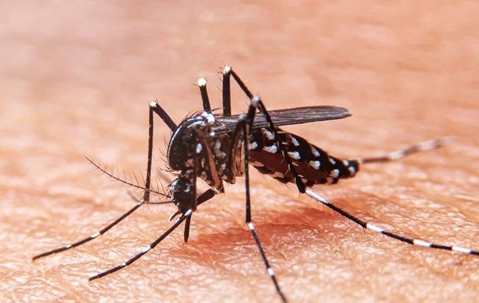Mosquitoes are as much a factor of life as food and water. If you have a yard, especially near a pond, lake, or marshland, you've probably got mosquitoes in it. There are over 3,000 types of mosquitoes worldwide, and at least 200 of them are known to live in the US. They have slim bodies, scale-covered wings, and six legs that hang beneath them while they fly. Females require blood meals to complete their life cycle, while males primarily dine on plant nectar. Mosquitoes breed in large numbers under the right conditions. Because of that, you need to know how to eliminate mosquitoes from your yard. For pest control in East Brunswick, contact NJ Mosquito Patrol.
The Life Cycle Of A Mosquito
The life cycle of a mosquito is fairly straightforward. The adult female mosquito lays hundreds of eggs, one at a time, in standing water, such as ponds, puddles, or bird baths. The eggs stick together, forming a floating raft. They hatch underwater and can do so anywhere from a few days to a few months, bringing forth mosquito larvae. The larvae live underwater and, after a few days, metamorphose into pupae, which also live underwater. The pupal stage lasts just a few days, during which they develop into full-grown adult mosquitoes, ready to mate and start the cycle all over again.
The life cycle of the most common mosquitoes that feed on humans only takes a week or so from egg to adult. This fast-breeding time means knowing how to get rid of mosquitoes by partnering with NJ Mosquito Patrol is critical.
Why Mosquitoes Become A Problem In Spring
In spring, the weather warms up, and rains increase, providing lots of standing water for mosquitoes to lay their eggs in. A few mosquitoes can quickly become thousands within a week between laying the eggs and hatching into mature adults.
Let's say you start with one pair of mosquitoes on March 1st. They mate and lay 100 eggs. On March 8th, there will be 50 new females to lay 100 eggs each – that's 5,000 eggs. On March 15th, there will be over a quarter million eggs laid. On March 22nd, this number could be over ten million. Granted, not all of them will survive, becoming prey to birds, spiders, mosquitofish, bats, damselflies, dragonflies, and frogs. But that's still a lot of mosquitoes, and that's why you need to work with NJ Mosquito Patrol to get rid of mosquitoes in the yard.
If that wasn't enough for you, mosquitoes are known carriers of several diseases, including:
- West Nile virus
- Dengue
- Chikungunya
- Encephalitis
- Tularemia
Around the world, mosquitoes also cause illnesses such as malaria, Zika virus, and yellow fever that are occasionally brought to the United States by travelers.
Five Tips To Minimize Your Mosquito Exposure
There are several steps you can take to minimize your exposure to mosquitoes, including:
- Stay on top of your yard work. Tall grass and dense vegetation are the perfect daytime home for mosquitoes. Keep your grass short, trim trees, and cut back bushes and shrubs to eliminate these harborage areas. Also, make sure your yard has good drainage to prevent standing water, and don't overwater.
- Keep mosquitoes out of your home. Repair or replace any torn window or door screens. If you don't have screens but want ventilation during the spring and summer months, install some. Otherwise, keep your doors and windows closed so mosquitoes won't wander in, looking for their favorite meal.
- Avoid mosquitoes when they're most active. Stay inside when it's dawn or dusk. Also, wear high-quality mosquito repellent on your skin and clothes. Wearing long sleeves and pants can also help you avoid mosquito bites.
- Remove as much standing water on your property as possible. Turn over containers that might gather rainwater, such as trash can lids or empty flowerpots. Keep your gutters clear and use splash stones or downspout extenders to direct water away from your home to areas with good drainage. Maintain swimming pools and fill low-lying areas where water may pool after a heavy rainstorm.
- Prevent mosquitoes from breeding in your yard. Mosquitoes stay in the same area where they were hatched; they don't travel far in search of blood meals.
You can also hire a pest control professional who knows how to get rid of mosquitoes in the backyard to treat your property to interrupt the life cycle of mosquitoes, preventing them from developing into full-grown adults.
Call NJ Mosquito Patrol For Comprehensive Mosquito Abatement
At NJ Mosquito Patrol, we know how to get rid of mosquitoes while protecting your home, your health, and the environment. Our years of experience have taught us a lot about mosquito control, and we're eager to put that knowledge to work for you. Call us now for your free estimate to get rid of mosquitoes.
Our certified pest experts will work with you to find the best solution for your needs. Simply fill out this form for a free, no-obligation estimate.

